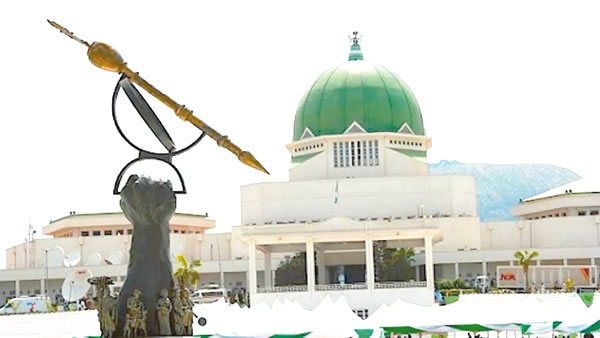The National Assembly has appraised the performance of the 2024 Budget and passed a damning verdict: there were huge discrepancies in the size of the recurrent expenditure relative to capital expenditure.
It also faulted the low level of fund releases for capital projects for Ministries, Departments and Agencies (MDAs) in the ongoing 2024 Budget.
The Senate Committee on Appropriations and its counterpart in the House of Representatives made the submission at a joint sitting with the Presidential Economic Team on consideration of the 2025 Appropriation Bill.
Senator Solomon Adeola, representing Ogun West and Chairman of the Senate Committee on Appropriation, and Honourable Abubakar Birchi, Chairman of the House Committee on Appropriation, both agreed that the economic team of President Bola Ahmed Tinubu “should do something urgently to release more funds for capital projects as this is a major way for the people to feel the impact of government away from recurrent expenditure, which affects only a negligible part of the population.”
A statement signed by media aide to Senator Adeola, Kayode Odunaro, disclosed that “the position of the National Assembly followed the report of the economic team led by Mr Wale Edun, the Minister of Finance and Coordinating Minister of the Economy, showing that overall, so far 2024 budget performance was 43%, with recurrent expenditure achieving 100% while the capital budget only managed 25% performance.”
Senator Adeola said he is an advocate of drastically reducing the ratio of recurrent expenditure to capital in the budget from the present level of about 80% for recurrent and 20% for capital to at least 60% to 40%, stressing that capital projects in the budget and their implementation are a major spur for economic growth and direct impact on the people.
“Capital releases to MDAs are the major drivers of economic activities within the nation. Non-release of funds for capital projects is a major issue in the performance of the 2024 Budget so far and it is desirable that funds are released to prevent abandoned projects and ensure the success of the Renewed Hope Agenda of the president,” he stated.
The Senate Committee on Appropriation hinted that it would not be favourably disposed to a situation whereby MDAs come for their 2025 budget defence with a record of non-performance of their core mandates as contained in the capital budget, stressing that within the period of the 2024 budget still running, effort should be made by the Finance Ministry to release funds for capital projects.
Speaking in a similar vein, Honourable Birchi called for more releases for capital projects of MDAs for such projects as schools, roads, dams, hospitals, and other social infrastructure instead of such items as debt repayment, which he argued can be restructured in the interim.
“Most of the items of recurrent expenditure, which take a huge part of our budget and are implemented 100%, will only directly affect about 10% of our population, while capital projects of the MDAs will directly affect the majority of over 200 million Nigerians in areas of social infrastructure provisions like hospitals, schools, roads, energy, and similar,” he stated.
The Minister of Finance confirmed that they have outstanding capital releases awaiting funding, regretting, however, that the country cannot go back to the old ways of spending money that is not there to avoid backlash as happened in France and Germany recently, adding that there are warrants awaiting payment for capital projects.
Also throwing light on the issue, the Minister of Budget and Planning, Alhaji Abubakar Bagudu, said the huge recurrent expenditure in our budgets is a function of our level of development and some of the societal challenges we are facing at this moment, adding that some of the recurrent expenditure goes into the campaign of the military against insecurity, which is yielding results to spur agricultural production and economic activities.
The Director General of the Budget Office, Dr Tanimu Yakubu, also attributed the huge recurrent expenditure to past legacies inherited by President Bola Ahmed Tinubu in areas like unpaid pensions and gratuities, which the administration has successfully addressed, stressing that in the future there may be a need for legislation by the National Assembly to limit the size of recurrent expenditure in the budget.
The meeting, which had in attendance the Minister of State for Finance, Dr Doris Uzoka-Anite, and the permanent secretaries of the Ministries of Finance and Ministry of Budget and National Planning, also deliberated on the issues of waivers and tax holidays, which seem to reduce revenues for the government.
READ MORE FROM: NIGERIAN TRIBUNE
